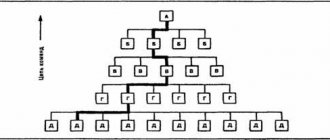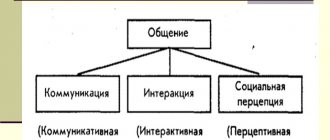Who is Henri Fayol
Henri Fayol is the creator of scientific management. He studied not individual parts of labor organization, but the system as a whole. He also devoted time to the issue of governance. This was a kind of revolution, since no one had touched on this topic before. The result of the work is Fayol’s 14 principles of management.
The conclusions he drew are not unfounded. For a long time, Fayol held the position of leader. At the time of the start of cooperation, she was heading towards ruin at a confident pace. When Fayol left office, Colombo entered the world stage and was able to compete with other mining enterprises.
It turns out that Fayol’s principles are based solely on his own observations and personal experience. He spoke about them in the book “General Industrial Administration in 1916”.
The Colombo position gave way to a supervisory position at the administrative research center. According to Henri Fayol, any company or enterprise performs 6 types of activities:
- Technical. This is the actual production process.
- A commercial. Everything that will be needed during the work process is purchased. These are materials for production, provision of services or sale of finished goods.
- Financial. Involves attracting, retaining, and proper use of money.
- Accounting. Collection and analysis of statistical data. Making report. Record keeping.
- Administrative. Impact on workers.
- Protection of personality and life.
And in each of the listed activities, it is necessary to comply with the management principles of Henri Fayol. This is the only way to make your work ]productive[/anchor].
Basic principles of organization management
To thrive and be successful, any company must conduct its activities based on the basic principles of organizational management. Let's take a closer look at each of them.
Division of labor
The essence of the method is revealed in division and specialization, due to which it becomes possible to increase productivity and improve quality.
Thanks to the division of labor, everyone knows their place in the organization and does their job masterfully, doing it better than other workers.
Unity of leadership
It lies in the desire to achieve one goal, as well as in the balance of centralization and decentralization. There are no “pure” structures. There must be a certain balance in the organization, when one complements the other.
After all, the advantages of centralization lie in the coordination of all parts of the organization, in strict subordination to one control center.
In turn, decentralization makes it possible to transfer part of the powers and responsibilities to lower levels of the structure. And this makes the structure more flexible and increases its adaptability.
Staff stability
This is also an important point. In this case, the entire organization benefits because:
- There is no need to waste precious time on training, adaptation of newcomers,
- performance indicators are not reduced,
- The company's income does not decrease.
Motivation and stimulation are the key to success
Every employee will strive to do the job better, faster, and with better quality if he has clear motivation. At the same time, management needs to study their subordinates and understand what incentive is the driving factor for them.
For example, for one employee, material incentives (bonuses, salary increases) are important, while for another, the incentive may be career advancement, praise from superiors, increased authority, and so on.
Striving for mutual well-being
The basic principles of managing an organization should include the desire for mutual well-being. An organization exists for the benefit of its employees, and employees should also strive to increase the well-being of their company.
Let's remember Japan. There is such a thing as “lifelong employment”, when a person works at one enterprise all his life. At the same time, a person completely devotes himself to the company, imbued with its goals, ideas, and traditions. He “gives his all” and for this he receives certain benefits from the enterprise. An employee's career begins at the lower levels, but subsequently he receives a rapid rise in his career, privileges, respect from management and an increase in salary.
And if in Japan a person was fired, then it was a real tragedy and shame for him.
Development principle
We are talking about both the development of a specific employee and the development of the organization as a whole. These two concepts are inextricably linked, because if an employee develops professionally, therefore, his competitiveness increases.
You can promote the development of employees through trainings, seminars, and training courses. Such employees have extensive experience, knowledge, and skills. They get the job done even faster and with better quality.
With such professionals, the company has new prospects and a more advantageous position in the market.
Attention, respect and recognition
These concepts are almost at the top of Maslow’s famous pyramid:
This important point cannot be ignored, because in the absence of these components, a valuable employee may leave the company or stop working with proper efficiency.
Economical
This principle states that management should be carried out at the lowest cost, while achieving high results.
The organization must be effective. This means that its activities must lead to the desired result, which can be assessed by its profitability.
Modern conditions of existence of organizations dictate new principles in management. These include the following points.
Customer Focus
Each organization produces goods or services for a specific segment of consumers. The profitability and success of the organization depends on their satisfaction, tastes and preferences.
Market research and customer satisfaction surveys must be constantly conducted to keep abreast of consumer expectations and demands.
If you ignore this most important guideline, you can soon become bankrupt.
Expanding spheres of influence, searching for new markets and niches
Every company should strive for a dominant position in the market. This is possible by expanding spheres of influence (achieved through competitive advantages).
Focusing on your consumers, you need to sell yourself in new market segments. It is also possible to expand production or offer related services.
Focus on the future and the final result
This principle comes out of the organization's mission and is implemented through strategic planning.
A company cannot live only for today; it must act strictly according to the strategic plan for its development.
Using universal human values in management
An organization consists primarily of people, a team. Guided by generally accepted norms and values, you can create a harmonious environment within the company.
If the employee’s values are the organization’s values, this doubles the success.
In addition, universal human values are also important for the consumer. He wants to see a loyal company that is trying for him.
Initiative and search for non-standard solutions
Initiative should be welcomed in the organization. Moreover, it can come from both management and an ordinary employee. The search for non-standard solutions allows the company to reach a new, higher quality level.
Non-standard solutions can concern any area of activity, from production to sales and marketing of products, from management within the structure to expanding market share.
Moreover, non-standard ideas can be so successful that they will allow the organization to increase profits and become a monopolist in the industry.
Using these or similar principles will allow management to take their company to the highest level and make the success of their employees the success of the company.
Guiding principles in management systems based on international standards
If we talk about such management principles, it is also useful to use the principles that are set out in almost all international standards for quality management systems, ecology, occupational health and safety, product safety and others - these are the so-called ISO standards. ISO – International Standard Organization, which means International Organization for Standardization, but in Russian the abbreviation ISO is accepted.
With the help of such standards, it is possible to build management systems that are aimed at achieving the goals set by the organization in the field of quality, ecology, labor protection, etc. And this is achieved, among other things, through the application of the principles of management of quality, ecology, safety, etc., which set out in similar standards.
How the application of management principles helps an organization achieve success
Following management principles, announced or not announced, but understandable by default to the majority of the organization’s employees, creates conditions in the organization under which employees understand what they want from them. The principles of management themselves can be different, calling forward to development, or, conversely, inhibiting development.
The management principles themselves, understandable to the majority of employees, make it possible to obtain a synergistic effect from the joint efforts of the majority in achieving the goals of the management system. They allow people to direct their energy and strength in the direction they need to go. I repeat, the direction “where” itself may not always be for the better, alas.
The opposite of managing an organization based on stated or unstated principles is “unprincipled” management. It will lead to the need for a lot of effort to monitor the work of staff, starting from the moment goals are set. The goals of individuals and groups will be so different that together they will not lead the company in the direction that managers want.
That is why the presence of management principles and adherence to them simplifies control and creates the conditions for setting and implementing management goals that develop the organization in a given direction. But, as you know, a management system is a system for achieving set goals. So management principles can be used as the basis for goal setting, goal development, and the deployment of goals in the organization. This ultimately allows the organization to achieve success in its chosen direction of development.
Also on topic:
1. Asking the right question is the key to successful leadership.
2. How to get into the consumer’s head using surveys
3. Videoconferencing is a communication tool for modern organizations
Principles ensuring the functioning of the control object
Separately, it is necessary to highlight the principles that ensure the proper functioning of the control object. These principles include the following:
- the principle of legal protection of management decisions. This principle requires the management of the organization to have knowledge and intentions to comply with applicable laws. The main aspect is the ability to make decisions taking into account the compliance of decisions with legal acts.
- control optimization principle. This implies a reasonable combination of centralization, which has an advantage in solving global strategic problems, but suppresses the initiative of the performer, and the identification of the optimal norm of control, the fluctuations of which occur within 3-7 performers subordinate to the manager.
- principle of delegation of authority. It is envisaged that management will transfer part of its functions to subordinate employees without actively interfering with their actions and provide them with independence. Freeing up time from less complex daily activities allows the manager to concentrate his efforts on solving complex management-level problems.
- principle of correspondence. The principle calls for greater care when determining the type of work for certain employees, since the work performed must be consistent with their intellectual and physical capabilities. Thus, the worthy task of a person is to become what he can become. The leader must help his subordinates in this, while at the same time turning this principle towards himself.
- the principle of automatic replacement of missing items. According to the principle, absent employees should be automatically replaced (reasons: illness, vacation, business trip, etc.) in accordance with current job descriptions.
General management principles
When studying principles, you first need to turn to the general principles of management, the effect of which can be found in any area of management activity, at any level and in any period of life of the management system. These principles include:
- principle of objectivity. It assumes a certain impact of the subject of control on the object in order to understand and use the objective laws of the functioning of the object and its development in the interests of ensuring the necessary functioning of the control system.
- principle of consistency. The principle is based on the study of a control object as a whole, consisting of individual elements interconnected in such a way that a change in the properties of one or several elements entails a change in other elements and the control system as a whole.
- principle of complexity. It can be presented as a specific form of concretization of systematicity. Thus, the integrated principle promotes research and assessment, examination of decisions made from the perspective of different branches of knowledge and experience, ensuring their mutual coordination and integration.
- concrete historical principle. Associated with the study of the emergence, formation and development of problems in management in chronological historical sequence, taking into account the factors and conditions influencing management.
- principle of competition. Competitiveness as a manifestation of the viability of any social system influences the degree of viability of the elements of the system. The principle of competition needs to be applied more widely - both between management systems and within management systems (for example, when selecting personnel).
- master principle. The solution to a particular management problem is associated with many facts, events, etc. Identifying the main link is the most important part of the management process. The principle of the main link is the search for the main problem from many other problems, the solution of which will resolve all management issues.
Universal principles of management by A. Fayol
Formation of the administrative (classical) school of management (1920 -1950). Universal principles of management by A. Fayol.
The classical or administrative school in management occupies the period of time from 1920 to 1950. The founder of this school is Henri Fayol, a French mining engineer, an outstanding manager-practitioner, one of the founders of management theory. Fayol's followers, who developed and deepened the main provisions of his doctrine, are Lindal Urwick, L. Gulik, M. Weber, D. Mooney, Alfred P. Sloan, G. Church. Fayol and others belonged to the administration of organizations, which is why the classical school is often called administrative.
In contrast to the school of scientific management, which dealt mainly with issues of rational organization of labor of an individual worker and increasing production efficiency, representatives of the classical school began to develop approaches to improving the management of the organization as a whole.
The goal of the classical school was to create universal principles of management. The "classics" tried to look at organizations from a broad perspective, trying to determine the general characteristics and patterns of organizations. In doing so, they proceeded from the idea that following these principles would undoubtedly lead the organization to success. These principles covered two main aspects. One of them was the development of a rational management system for the organization. By defining the core functions of a business, the classical theorists were confident that they could determine the best way to divide an organization into departments or work groups. Traditionally, these functions have been finance, production and marketing. The definition of the main management functions was closely related to this. Fayol's main contribution to management theory was that he divided all management functions into general, related to any field of activity, and specific, related directly to the management of an industrial enterprise. Fayol viewed management as a universal process consisting of several interrelated functions such as planning and organization.
The second category of classical principles concerned the construction of the organization's structure and employee management. An example is the principle of unity of command, according to which a person should receive orders from only one superior and obey only him alone.
Based on the developments of Fayol and his followers, a classic model of organization was formed, based on four main principles:
— clear functional division of labor;
— transmission of commands and orders from top to bottom;
— unity of management (“no one works for more than one boss”);
— compliance with the “span of control” (managing a limited number of subordinates).
All of the above principles for building an organization are valid today, despite the fact that the achievements of scientific and technical progress have left a certain imprint on them. Thus, the widespread use of electronic computer technology in practical activities has simplified communications between management bodies (units) in an organization by accelerating information processing.
In general, the classical school of management is characterized by ignoring people and their needs. Adherents of the classical school did not care much about the social aspects of management. For this, representatives of the school are subject to fair criticism from management theorists and practitioners.
Moreover, their work was largely based on personal observations rather than based on scientific methodology.











